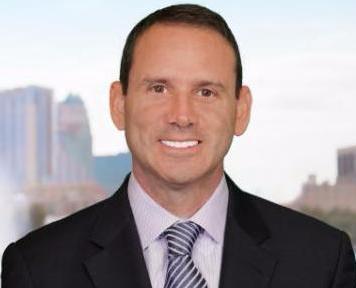
Head Scratcher? Claims Litigation Not Named as Major Factor in Florida Insolvencies
Despite years of complaints from Florida property insurers and some lawmakers that out-of-control claims litigation was destroying the industry, recent regulators’ reports about the reasons for insolvencies make little mention of the “L-word.”
The omission has prompted some head scratching and new questions by policyholder representatives.
“That’s ridiculous,” said Gina Clausen Lozier, a south Florida plaintiffs’ attorney. “You’d think with all the concerns about litigation in the last few years that would be number one on the list.”
The Florida Department of Financial Services’ Division of Rehabilitation and Liquidation posted its 2022 Annual Report in April. It recently caught the eye of advocates for homeowners, policyholders that have seen premiums spike in Florida while at least 10 insurers have become insolvent since early 2021. The R&L report’s page 7 lists “factors contributing to insolvency,” including:
- Inadequate capitalization or asset deterioration
- Improper management
- Insufficient claim reserves
- Rapid premium growth
- Inappropriate transactions with affiliates or subsidiaries
- Inadequate premium rates
- Natural disasters or catastrophic losses
- Change in business conditions
- Reinsurance market issues.
Claims litigation, which industry supporters have often called the number-one reason for insurers’ financial troubles in Florida, and which led to major legislative reforms in the last five years, is not mentioned directly in the report. That suggests that insurance company leadership and corporate structure, not trial lawyers, are more to blame for mismanaging operations and failing to maintain adequate reserves, said Doug Quinn, executive director of the American Policyholder Association, a national, non-profit group that advocates for investigations into insurers’ claims practices.
“All of the finger-pointing and scapegoating at consumer fraud, excess litigation, and roofing scams are just to divert attention away from what’s really going on behind the scenes,” Quinn said. “There’s a lot of finger-pointing at outside parties, but failing at business is an inside job.”
A Department of Financial Services official, responding to questions from Insurance Journal, said claims litigation is a factor behind the factors listed in the report. The R&L annual report examined insolvencies from 2017 through 2022, including the liquidations of St. Johns Insurance Co., Avatar Property and Casualty Insurance, and Southern Fidelity Insurance, said Devin Galetta, communications director for Florida’s chief financial officer, Jimmy Patronis.
“While the words ‘claims litigation’ do not appear on that particular page, the reality is that during the period covered by these reports, 79% of the nation’s homeowners insurance lawsuits were filed in Florida while the state only accounted for 9% of the nation’s homeowner’s insurance claims,” he said in an email, citing an oft-quoted statistic compiled by the Florida Office of Insurance Regulation, based on data from the National Association of Insurance Commissioners.
“‘Claims litigation’ is a driving factor for many of the listed insolvency factors, including asset deterioration, insufficient claims reserves, inadequate premium rates, reinsurance market issues and changing business conditions,” Galetta said.
He added that litigation is not the only force behind recent insolvencies. “But it is a throughput that causes a wide variety of disruptions to the insurance market as initial estimates of a storm’s cost continue to increase for months or years after a storm makes landfall, due to litigation costs.”
Other factors include sharply rising reinsurance prices and inadequate premium levels, which are included in the report.
The spike in reinsurance rates in the last three years reflects excessive claims litigation as much as anything, said Kevin Comerer, a consultant and registered lobbyist with Rubin, Turnbull & Associates, in Tallahassee. He was previously legislative director for a major Florida property insurer. Comerer noted that reinsurers have pulled back from the Florida market and have raised prices in large part because litigation soared between 2018 and 2023.
“You were seeing losses in year two and three that were equal to or greater than year one after a hurricane, and that was all because of an explosion of roof claims and lawsuits,” he said.
The R&L annual report isn’t the only regulatory document that doesn’t emphasize litigation as a driving force.
The division is required by state law to produce port-mortem reports each time an insurer is deemed insolvent. The division’s website lists insolvency reports only through 2019, but Galetta provided initial reports for four insurers that went out of business in 2022 and 2023: United Property and Casualty Insurance Co.; FedNat Insurance; Weston P&C; and Southern Fidelity.
In two of those reports, for FedNat and for Weston, claims lawsuits, litigation and attorneys fees were not listed.
“Despite significant capital infusions in 2020 and 2021, FNIC’s surplus as regarding to policyholders continued to decline,” the 7-page FedNat report notes. “Additional factors included poor operational results, limited access to additional capital, and a jeopardized financial stability rating.”
For Weston, the division said weather events played a significant role.
“The company had insufficient assets or reinsurance to pay potential claims to policyholders during the 2022-2023 Atlantic Hurricane season,” the report said. “Despite actions taken by Weston to improve its financial condition, including a Capital Management Plan and Risk Based Capital Plan, Weston’s surplus as regards policyholders continued to deteriorate and ultimately led to the company’s referral for delinquency proceedings.”
For United and Southern Fidelity’s delinquency proceedings, lawsuits were named as one contributor.
“UPCIC’s losses over multiple years affected its surplus,” the United report noted. “The large percentage of litigated claims drove up its costs. The $140 million reserve deficiency related to Hurricane Ian in September 2022 resulted in the company’s referral to the Department for delinquency proceedings.”
Florida insurance defense attorneys, carrier executives, industry lobbyists and prominent legislators in recent years have also pointed to assignment-of-benefits agreements as a major problem, leading to wildly inflated roof and water-damage claims and unnecessary litigation. The Florida Legislature in 2019 approved measures to limit AOBs. In 2022, lawmakers barred one-way attorney fees in AOB litigation, then outlawed AOBs altogether.
Only the Southern Fidelity insolvency report lists AOBs as a factor.
“Litigated claims related to Assignment of Benefits claims drove up costs in 2014-2015,” the report reads. “Losses from Hurricane Ida in 2021 are projected to exceed the top of the company’s catastrophe reinsurance tower. Ultimately, Southern Fidelity’s failure to secure a reinsurance program for the 2022 hurricane season and the late development of reserves for Louisiana claims exhausted the remaining surplus which resulted in the company’s referral for delinquency proceedings.”
Quinn and others have maintained that litigation has played a smaller role in financial losses than industry leaders have said, and intricate corporate structure and “profit shifting” are more to blame. At the May 2022 Florida special session on insurance reform, several Democratic lawmakers, including then-state Sen. Gary Farmer, D-Broward County, said that a number of companies had diverted profits to managing general agencies, leaving the actual insurance companies with inadequate reserves.
Quinn suggested the DFS reports bear that out with their references to “inappropriate transactions with affiliates or subsidiaries.”
“Properly managed and reserved companies do not go under,” Quinn said.
Industry advocates have strongly disagreed, noting that most insurers would not deliberately bleed themselves dry. Instead, they have argued, under the perfect storm of Florida statutes and court decisions that evolved over the last two decades, claims lawsuits and fraudulent roof claims became a cottage industry that exploded as some plaintiffs’ attorneys took advantage of prevailing-attorney fees and fee multipliers.
Thank You to the Cohen Law Group for sending us this article.
 “It’s About Justice” is more than a slogan. It is our firm’s mantra. The motto was developed by our founder, Harvey V. Cohen. We are aggressive, zealous advocates for our clients’ rights. Our commitment to our clients is evident by our prompt reply to all phone calls and our 24 hour availability through our phone answering service.
“It’s About Justice” is more than a slogan. It is our firm’s mantra. The motto was developed by our founder, Harvey V. Cohen. We are aggressive, zealous advocates for our clients’ rights. Our commitment to our clients is evident by our prompt reply to all phone calls and our 24 hour availability through our phone answering service.
Effective legal representation requires experience and dedication to protect the rights of those who have entrusted us with their legal options and rights. Cohen Law Group has successfully represented many Florida residents throughout the years in various legal matters.
Like this:
Like Loading...
Tags:
Insurance,
Members Articles



















